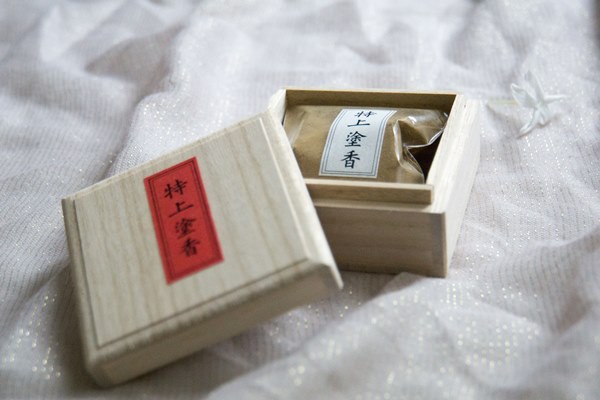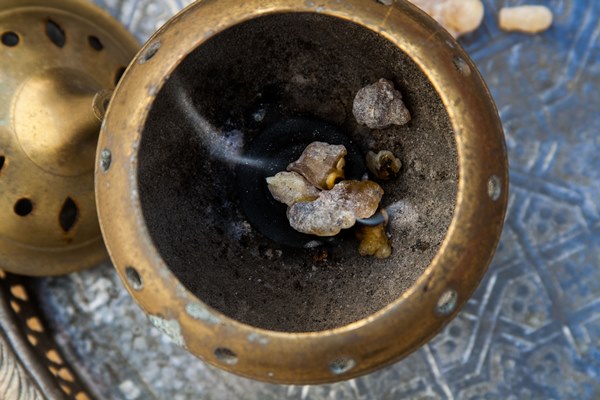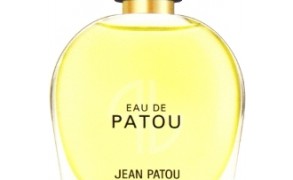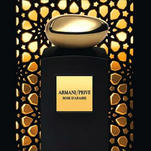Shoyeido Incense Powder Perfume Zu-Koh
Incense powder is one of the oldest forms of perfume, and Japan has perfected its craft. Called Zu-Koh in Japanese, incense powder is made by mixing finely ground ingredients like sandalwood, clove, cinnamon, camphor, and patchouli. Different combinations of the same materials can vary from bright and spicy to dusky and mellow. This form of incense perfume is easy to use–just rub it onto the pulse points–and it lasts well. Unfortunately, it’s becoming increasingly rare, and the Japanese incense maker Shoyeido is one of the few brands still offering it.

Shoyeido makes three types of incense body powder, but the difference among them is not so much in terms of scent as in the quality of the components. Johin is the most affordable one at $10.95. It has a soft scent of sandalwood dominated by camphor and clove. It’s the least long lasting of the three powders.















Joi in Giorgio Armani Mania : Long Lost Favorite Perfume: Yes!! January 25, 2024 at 2:54am